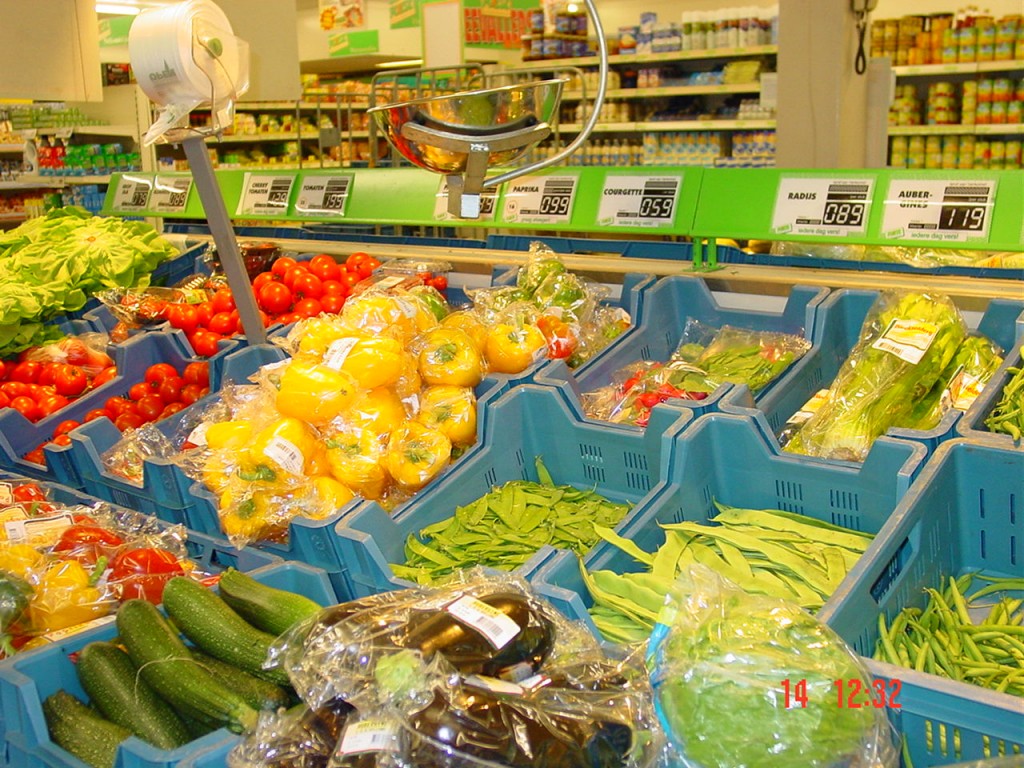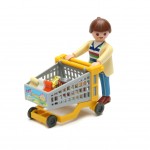Bradford-based commercial property supermarket chain Morrisons is to plough £100m into opening convenience stores to take the fight to Waitrose, Tesco and Sainsbury’s.
The supermarket is also developing its website as changing shopping habits turn the traditional commercial property supermarket business model upside down.

Morrisons Chief Executive, Dalton Philip, said the giant “big box” hypermarkets that underpinned much of the success of the market leader, Tesco, during the last decade were “soulless sheds” that would turn out to be a “blip in the pages of retail history” as Britons increasingly logged on to buy home ware and clothing.
He said: “The way customers shop is changing. General merchandise is migrating online, away from high street and from ‘big box’ supermarkets. In the future, general merchandise will not be big box but delivered in a cardboard box.”
Morrisons has just three M Local commercial property convenience stores, sized up to 3,000 sq ft. The company has plans to add an extra 70 convenience outlets over the next two years as it makes a late entry into the convenience food retail market, which is developing at twice the rate of the wider market and now accounts for £1 in every £5 spent on groceries.
Mr Philips added: “This is a real statement of intent that we are taking this channel very seriously.”
The UK’s fourth-biggest commercial property grocer also revealed it will launch a non-food promotion online in its fourth quarter, but will hold fire on selling food on the internet until late 2013 at the earliest. The company will also inject money into Kiddicare, the baby goods internet retailer it acquired last year and the Morrisons website itself.
Philips did say that there was no guarantee that Morrisons would launch an internet grocery service, regardless of last year’s purchase of a stake in the US online grocer FreshDirect.
“We do not believe any retailer in the UK has achieved the right balance of service to customers and profitable returns for shareholders,” Philips said, arguing that an unprofitable website was effectively funded by the customers who drove to a retailer’s shops. 
Morrisons is behind the curve in new business channels such as the internet because its previous boss and founder, Sir Ken Morrison, shirked anything other than its traditional 38,000 square feet commercial property supermarkets and dismissed home delivery as something he had done “on a bike as a young man”.
Rival retailer Tesco has nearly 2,000 commercial property convenience stores, including its One Stop format, whereas Sainsbury’s operates 435 commercial properties and Waitrose has 29. Morrisons is the smallest member of the big four behind commercial property retailers Tesco, Asda and Sainsbury’s – with 6.6m UK households not in easy reach of a commercial property store. To increase it’s market size, it has set aside £700m to open 25 commercial property stores this year. However Mr Philips said: “We know we have a format that works well,” arguing customers increasingly sought fresh fruit and vegetables from their supermarkets, and would start to buy their non-food shopping, such as toiletries, from online shops.
 The company’s full-year results beat City expectations. The commercial property company delivered a better than expected 8 per cent rise in yearly revenues to £935m for the year to 29 January 2012. It also increased its total sales by 7 per cent to £17.7bn, thanks to the company cutting costs, such as improving procurement. Finance director of the company, Richard Pennycook, said it had saved money on cutting the amount of printing it did.
The company’s full-year results beat City expectations. The commercial property company delivered a better than expected 8 per cent rise in yearly revenues to £935m for the year to 29 January 2012. It also increased its total sales by 7 per cent to £17.7bn, thanks to the company cutting costs, such as improving procurement. Finance director of the company, Richard Pennycook, said it had saved money on cutting the amount of printing it did.
City analysts were divided on its performance, with the Oriel analyst Jonathan Pritchard frustrated that Philips did not announce more commercial property convenience store openings or refurbishments. He said: “Whilst in certain ways management’s conservatism is to be applauded, it could be about to miss a major growth opportunity with its inertia on convenience.”
He further added: “The sector is going to be a tough place to be in 2012 and industry sales and profits momentum is profoundly negative. Arguably Morrisons is the most exposed as it has few alternative routes to market, barring plain vanilla mid-sized supermarkets.”
The company said its sales, up 1.8 per cent on a like-for-like basis, had been hard fought, with consumers becoming more aware of their budgets than ever before. Mr Philips said the average customer now spent 20 per cent longer in store, spending their time checking prices. He hailed M Savers, its new budget variety, in enticing shoppers short of money. Over half of the collection, which now has 500 products, is priced at less than £1.
Mr Pennycook called on the Chancellor to scrap the scheduled fuel duty increase, saying that the supermarket group’s consumers had to pay £600m more for their petrol than in the year before.
He said: “I do hope as he prepares for the Budget he thinks long and hard about the windfall he has received from increased fuel duty receipts.”
Morrisons has been testing so called “fresh labs” in its commercial properties for the past 12 months, with a dozen stores modernised to include seafood counters, a much larger fresh produce displays and one-offs such as a patisserie or a sushi bar. It said another 36 of its 475 commercial properties were to be given the renovations which cost £1.7m.
The company remained cautious about the general economic outlook, with Philips saying:” We are seeing 2012 like 2011-tough. I don’t see the recovery coming any time soon.”